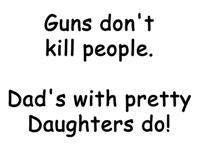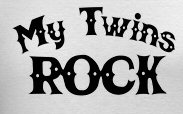9/16/2009
Common Ground
It seems that Papa Frank and Obama have finally found some common ground. When asked about Kanye West's latest outburst of idiocy Obama made the poignant observation that Kanye West is a jackass. For a small moment here I am proud of you Mr. President.
9/04/2009
I Am Proud Of Our School District
The Belton School District has received a number of inquiries regarding its plans for President Obama’s address to students on Sept. 8. In light of those inquiries, we have adopted the following plans.
The Belton School District will observe a normal school schedule on Sept. 8. No classrooms will view President Obama’s address live. The administration will view and tape the president’s address to American school children. The tape may be used in the future as a curriculum resource in appropriate classes. In that event, parents will be notified by teachers if they plan to use the tape in class. Parents may elect to remove their child during the viewing and discussion of the president’s talk. Students not participating will be assigned an alternative learning activity to cover the class objective for that day.
The tape of President Obama’s address will be available for parent check-out in every school library. Parents may check out the tape for home viewing with their children. If a group of parents would like to view the tape together with their children they may make arrangements to use a school library for that purpose.
The Belton School District will observe a normal school schedule on Sept. 8. No classrooms will view President Obama’s address live. The administration will view and tape the president’s address to American school children. The tape may be used in the future as a curriculum resource in appropriate classes. In that event, parents will be notified by teachers if they plan to use the tape in class. Parents may elect to remove their child during the viewing and discussion of the president’s talk. Students not participating will be assigned an alternative learning activity to cover the class objective for that day.
The tape of President Obama’s address will be available for parent check-out in every school library. Parents may check out the tape for home viewing with their children. If a group of parents would like to view the tape together with their children they may make arrangements to use a school library for that purpose.
9/02/2009
The Indoctrination Begins September 8th

Menu of Classroom Activities
President Obama’s Address to Students Across America
(PreK-6)
Produced by Teaching Ambassador Fellows, U.S. Department of Education
September 8, 2009
Before the Speech
• Teachers can build background knowledge about the President of the United States and his speech by reading books about presidents and Barack Obama. Teachers could motivate students by asking the following questions:
Who is the President of the United States?
What do you think it takes to be president?
To whom do you think the president is going to be speaking?
Why do you think he wants to speak to you?
What do you think he will say to you?
• Teachers can ask students to imagine that they are delivering a speech to all of the students in the United States.
If you were the president, what would you tell students?
What can students do to help in our schools?
Teachers can chart ideas about what students would say.
• Why is it important that we listen to the president and other elected officials, like the mayor, senators, members of congress, or the governor? Why is what they say important?
During the Speech
• As the president speaks, teachers can ask students to write down key ideas or phrases that are important or personally meaningful. Students could use a note-taking graphic organizer such as a “cluster web;” or, students could record their thoughts on sticky notes. Younger children could draw pictures and write as appropriate. As students listen to the speech, they could think about the following:
What is the president trying to tell me?
What is the president asking me to do?
What new ideas and actions is the president challenging me to think about?
• Students could record important parts of the speech where the president is asking them to do something. Students might think about the following:
What specific job is he asking me to do?
Is he asking anything of anyone else?
Teachers? Principals? Parents? The American people?
• Students could record questions they have while he is speaking and then discuss them after the speech. Younger children may need to dictate their questions.
After the Speech
• Teachers could ask students to share the ideas they recorded, exchange sticky notes, or place notes on a butcher-paper poster in the classroom to discuss main ideas from the speech, such as citizenship, personal responsibility, and civic duty.
• Students could discuss their responses to the following questions:
What do you think the president wants us to do?
Does the speech make you want to do anything?
Are we able to do what President Obama is asking of us?
What would you like to tell the president?
Extension of the Speech
Teachers could extend learning by having students:
• Create posters of their goals. Posters could be formatted in quadrants, puzzle pieces, or trails marked with the following labels: personal, academic, community, and country. Each area could be labeled with three steps for achieving goals in that area. It might make sense to focus first on personal and academic goals so that community and country goals can be more readily created.
• Write letters to themselves about how they can achieve their short-term and long-term education goals. Teachers would collect and redistribute these letters at an appropriate later date to enable students to monitor their progress.
• Write goals on colored index cards or precut designs to post around the classroom.
• Interview one another and share goals with the class to create a supportive community.
• Participate in school-wide incentive programs or contests for those students who achieve their goals.
• Write about their goals in a variety of genres, such as poems, songs, and personal essays.
• Create artistic projects based on the themes of their goals.
• Graph individual progress toward goals.
Subscribe to:
Posts (Atom)







